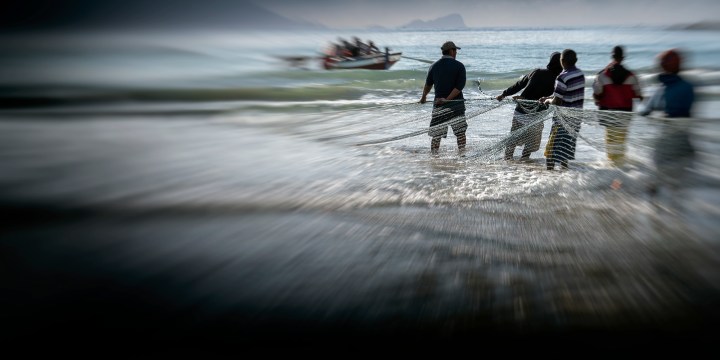2022 LAND CONFERENCE
‘We can’t be trespassers on our forefathers’ land’ — frustrated small-scale fishers

Asserting customary fishing rights for small-scale fishers in South Africa has been hindered by the government, policymakers and lawyers not talking to communities to gain an understanding of how they practise customary law.
‘It’s been a decade of explaining that you can’t regulate what you do not understand… the minister has been made the custodian of the ocean who gets to decide who gets fishing rights and who doesn’t,’ Wilmien Wicomb from the Legal Resources Centre said at last week’s 2022 Land Conference.
Customary systems of law are passed down from generation to generation — they are not written down as in Western law, but children and young adults are taught these systems. Some rules and guidelines are practised consistently in each facet of life, depending on the community, tribe, region and so forth. In coastal towns, these customary laws would include who gets to fish, how and when.
In 2010, three small-scale fishers were arrested in Dwesa-Cwebe in the Eastern Cape for fishing in the sea adjacent to the Dwesa-Cwebe Nature Reserve. The reserve had, in 2000, been declared a Marine Protected Area (MPA) by the then Minister of Environmental Affairs.
After a lengthy legal battle, the Supreme Court of Appeal made its ruling based on customary law rather than common law, and gave the community the right to fish without permits as it had been their way of life for more than 300 years. Also, the fishing would be conducted in a way that still protected the environment.
In 2001, the community had also fought for land and won restitution claims. However, despite these victories, the community still feels it’s fighting an uphill battle.
“The law calls us trespassers in our land… by word, we have it, but in reality, the land is not ours — it still belongs to the government. Please Wilmien, can you help us secure title deeds,” Josiah Cweba from Dwesa-Cwebe said while addressing the Land Conference delegates, among whom was Wilmien Wicomb of the Legal Resources Centre.
Visit Daily Maverick’s home page for more news, analysis and investigations
Western vs customary law
“Last month there was a protest in the community because traditional healers couldn’t access the sea to perform a healing ritual for a very sick man… we as black people find life in the sea,” Cweba said.
Jackie Sunde from the Masifunde Development Trust said, “Western law tends to compartmentalise, whereas customary law is about living holistically and every aspect of life feeds into the other — there are practices to secure food, spirituality, wellbeing… and all are closely linked to the land, forest and the oceans.”
Both Wicomb and Sunde have experience working in land reform, marine tenure, African customary law and community governance systems for natural resources. They have done extensive research to breach the gap between government and communities.
“The roll-out of the policies that recognise small-scale fishing rights has been a complete disaster. If there are not at least 20 members in a group (trying to secure fishing rights), they will not be recognised… so individuals have to come together with neighbours, even if the neighbours are four hours up the road,” said Wicomb.
“Perhaps the best illustration of a regulator sitting in Pretoria writing regulations without the faintest idea of what is happening on the ground would be the regulation that was passed after the Ramaphosa judgment to open the Dwesa MPA, which was benched in 2016 for both small-scale fishers and professional fishers.
“Dwesa-Cwebe is a huge area… it takes three hours to get from Dwesa to Cwebe if you have a car, which no one there does. It’s officially the poorest district in South Africa… people don’t have airtime, there is no communication,” said Wicomb.
“You don’t even see members of your village — there are seven widely spread-out villages… that’s the reality on the ground, and yet the regulations said that these hundreds of fishers must decide every day which 39 of them will go to sea. They also have to notify the [authorities] before midday, every day.
“There is also a limit of 30 mussels a day… this can only feed one small family. It’s unclear what they are supposed to do for the rest of the month.”
Wicomb said that the species of fish they were permitted to catch weren’t even found in that area.
While some advances have been made in recognising customary law regarding access to forests and oceans, experts and communities agreed that there was still a long way to go. For a start, there needed to be a better understanding of these laws and practical guidelines that not only aligned with indigenous people’s way of life, but also enriched it.
The conference wrapped up last week by discussing challenges to the Communal Land Tenure Bill, tenure security and legal leverage for land activists in the future. DM




















 Become an Insider
Become an Insider
Comments - Please login in order to comment.